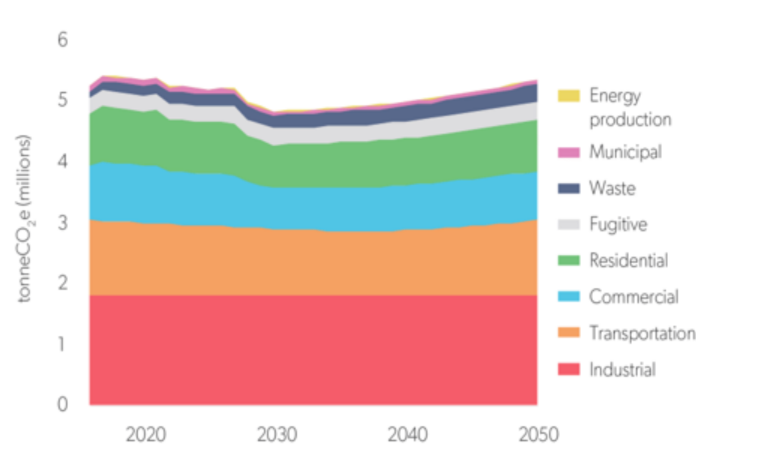Want to stay involved as we move toward a Renewable Regina? We will be seeking community feedback on how best to implement many of the actions outlined in the Energy & Sustainability Framework. Visit Be Heard Regina to sign up and be notified.
We all have a role to play.
How we get around, the daily choices we make, and how we engage with others all have an impact. Here are some ways you can help move towards a Renewable Regina.
At Home
Improving your home's energy efficiency is an effective way to save money, make your home more comfortable.
|
Seal Up Your Home & Save |
|
|
Replace Old Light Bulbs with Low-energy Lights |
|
|
Replace Your Furnace Filter |
|
Getting Around Town
Transportation, including personal and commercial vehicles, makes up 26 per cent of energy use in Regina. We all need to get places, but how we get there makes a big impact.
|
Prioritize walking and cycling. |
|
|
Plan ahead |
|
|
Hop on the bus – kids ride free |
|
| Share the road |
|
| Consider joining a car-share co-operative |
|
In the Community
Connecting with neighbours, local businesses, and organizations takes your impact further.
|
Buy local |
|
|
Get involved in community groups |
|
|
Participate in workshops and events |
|
Learn about Climate Change
Why does addressing climate change matter?
The bad news: Climate change is an unprecedented threat to global social, economic, and environmental systems. It endangers human health, public safety, infrastructure, and livelihoods, as well as the world's biodiversity and ecosystems. As the earth continues to warm due to human-caused greenhouse gas (GHG) emissions, the frequency and severity of these dangers grow.
The good news: Communities around the world, including Regina, are working together to reduce emissions that contribute to these dangers.
How Climate Change is Impacting Regina
Regina has already started to experience the impacts of climate change, with an increase in average temperatures, more days over 30°C in the summer, and wetter springs and winters. With these changes, there is an increased risk of extreme weather events, including longer and more intense heat waves and flash floods.
In the summer of 2021, during the development of the Energy & Sustainability Framework, Regina experienced what is thought to be the worst drought on record for the region, severe flooding due to heavy rainfall, and air quality warnings due to wildfires in northern Saskatchewan. According to the Climate Atlas of Canada, Regina can continue to expect increases in average temperature, increases in the number of extremely hot days (over 34˚C), and increased variability in rainfall patterns.
Climate Change Mitigation & Adaptation
Climate change mitigation means addressing the causes of climate change. This involves reducing GHG emissions to slow, stop, and even reverse the effects of climate change.
Climate change adaptation means addressing the impacts of climate change we are seeing now and will see more of in the future. This involves improving the ability of natural and human systems to be strong in the face of actual and expected climate change impacts like extreme heat events, flooding, and stronger storms.
The City of Regina is taking action to reduce the impacts of climate change and to adapt and prepare for a warmer, wetter, and more unpredictable future.
Our Community Emissions
The first step to creating our path to net zero was to measure and understand the community’s emissions. To do this, a “baseline” year – 2016 – was selected based on a number of factors such as available data. Then, all current plans and policies were projected to estimate their impact on our community emissions until the year 2050. In 2016, Regina’s community emissions in 2016 were more than 5 million tonnes with no signs of decreasing.
This picture charts our projected community emissions without a coordinated plan, which does not look good for the planet, or communities or economy.
The "Business as Planned Scenario" encompasses all plans in place during the development of the Energy and Sustainability Framework. It highlights that our best efforts to date have not set our community on the path towards a net zero and renewable future, necessitating a more ambitious and targeted approach.

Learn about the Energy & Sustainability Framework
Frequently Asked Questions
What does the Energy & Sustainability Framework include?
The Framework identifies seven ‘Big Moves’ and 31 related actions that are needed to achieve Regina’s goal of becoming renewable by 2050. The seven Big Moves are:
- Retrofitting existing buildings
- Net-zero new construction
- Fuel switching our heating
- Renewable energy generation
- Reducing vehicle emissions
- Increasing active transportation and transit use
- Cleaning and re-energizing industry.
These actions support global climate change mitigation targets to prevent warming beyond 1.5 degrees Celsius by 2050.
What will Regina residents be asked to do? How much will it cost?
The Framework is ambitious and requires sustained effort from the City of Regina, residents and all sectors of the community.
The City will be assessing municipal contributions through its budget processes and Council resolution, based on priorities. In anticipation of the Framework’s release, the City made strategic investments of $6 million in 2022 to advance municipal actions on the “low-carbon pathway”.
What does it mean to be 100 per cent renewable? What other cities have achieved this or committed to achieving it?
To be a renewable, net-zero city means that all electrification, heating and cooling, as well as transportation are powered from renewable energy or are offset by a reduction in emissions to achieve a net-zero increase in carbon released into the atmosphere. Several Canadian cities have declared that they will be 100 per cent renewable by 2050. These include Saskatoon, Halifax, Vancouver, Guelph, and Charlottetown.
This framework is very ambitious. Is it a realistic plan?
For the Framework to be successful, we know that it starts with us as a municipality. The actions in the Framework are all achievable using existing, available, and proven technology. Waiting to implement changes based on future technologies will not reduce emissions enough to meet Regina’s objectives. These actions are consistent with those approved in plans across Canada, including Saskatoon and other cities and aligns with federal legislation that will impact consumer markets.
It should also be noted that the cost of not moving toward more sustainable sources of energy will increase as well since the federal government has recently announced plans to increase the carbon tax.
Why was this pathway chosen rather than a less aggressive path?
The recommended Framework creates the best possible economic and equity opportunities for the community; balances the need to minimize the negative effects of climate change; and optimizes Regina’s competitive advantage in relation to other Canadian cities. It also aligns closely with recommendations of the Intergovernmental Panel on Climate Change (IPCC).
What will it cost the City to implement all 31 actions in the Framework?
The Energy & Sustainability Framework identifies a cumulative community capital investment in low-carbon actions. By 2050, the Framework estimates an investment of $11.5 billion and a cumulative net return of $12.5 billion. The net return by 2100 will be $18.7 billion.
Implementation will include actively pursuing new funding opportunities, financing mechanisms and strategic partnerships that can leverage additional funds and find efficiencies across multiple actions and based on data evidence.
How many Regina jobs will be gained as a result of switching to renewable energy?
Regina has tremendous opportunity for new industry and employment in the transition to renewable energy and the green economy. Overall, implementation of the Framework is expected to generate over 123,000 person-years of employment between now and 2050. This is equivalent to more than 4,000 full-time jobs per year existing in the community, beyond job projections in the business-as-planned scenario.
How did you decide on the Big Moves?
The Big Moves were determined through an interactive technical and community engagement process. Understanding Regina’s current energy and emissions profile including where and how energy is used in the community laid the foundation for understanding where intervention would be necessary, while community engagement influenced how to intervene in a way that would work for Regina.
Why aren’t you suggesting reaching the target sooner?
Moving to 100% renewable energy requires phasing out fossil fuel consumption. To achieve this sooner, it would be necessary to rapidly remove gasoline and diesel vehicles from the road and prohibit new fossil-powered vehicle purchases. A similar approach would be required for natural gas furnaces as a supply of renewable natural gas to meet current usage is not available in Regina. The rate at which the community can replace this equipment and fuel with clean alternatives is a major constraint that limits our ability to achieve the target earlier. There is also a significant industrial presence in Regina. Major industrial emitters largely have or are developing decarbonization plans with 2050 net-zero targets but the municipality does not have the authority to dictate their targets or pathways, including interim goals.
What assumptions were included in the energy and emissions modelling?
The modelling includes assumptions on future population growth, future energy costs and future patterns of activities. The approach to exploring future dynamics is addressed in the Data, Methods and Assumptions Manual.
Glossary
Building envelope – all parts of the house that separate the inside from the outside. This means, exterior walls, foundation, roof, windows and doors.
Clean energy - energy that comes from renewable, zero emission sources that do not pollute the atmosphere when used, as well as energy saved by energy efficiency measures.
Decarbonized – to remove carbon or material containing carbon from an object, like an engine. It can also mean moving away from energy systems that produce carbon. Decarbonization (the act of removing carbon from an object or the atmosphere) is important to help reduce greenhouse gas emissions from the atmosphere.
Net Zero Energy (NZE) - Net Zero Homes and buildings is a building with net zero energy consumption. Meaning the total amount of energy used by the building over a year is equal to the clean energy it produces.
Net-Zero Energy-Ready (NZER) – this is a building that has the same energy efficiency standards as a Net Zero Energy building, only the renewable energy systems (like solar panels) have not been installed yet.
Solar Orientation – the positioning of a site or building in relation to the sun’s path.




